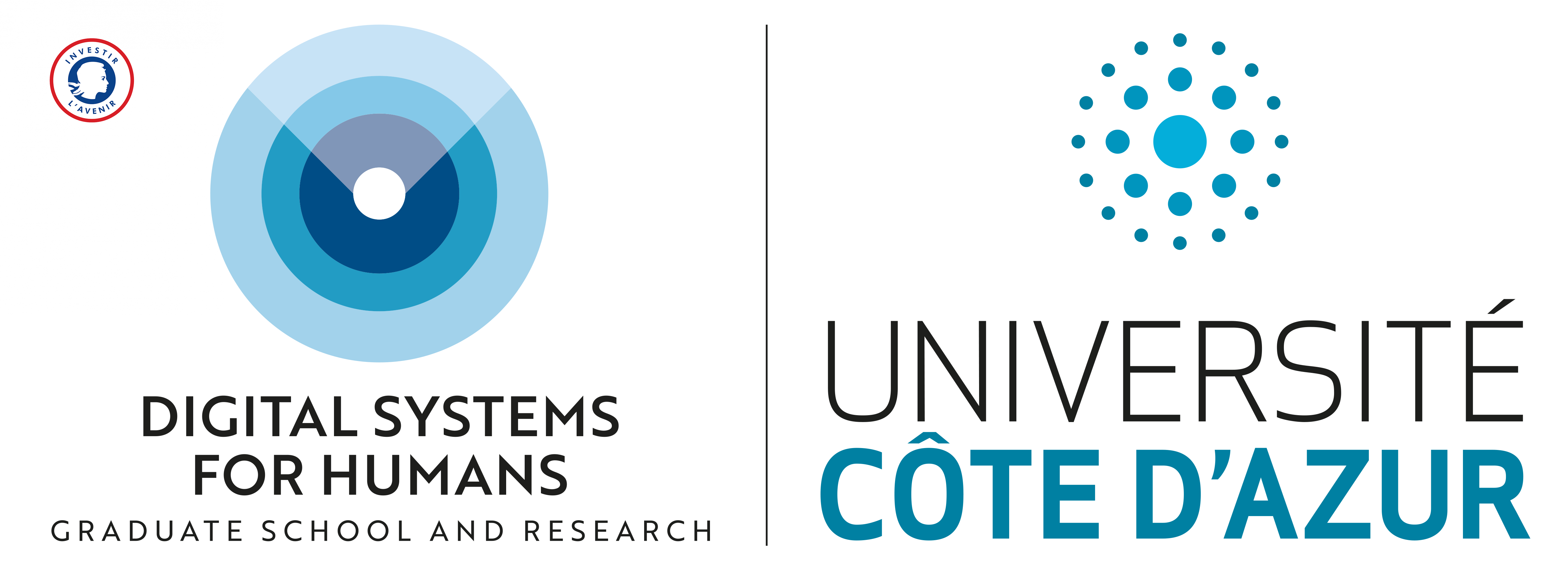Call to actions
Résumé
Become a technical manager for the telecommunications industry, the IoT and electronic systems design. Read moreObjectifs
Details
One track, two specializations
- Imaging and Telecom
- Connected Objects
Accéder aux sections de la fiche
Introduction
The master ESTel at a glance:
-
90% employment integration at 6 months with a median net salary of €2,300
-
20% of teaching hours provided by professional speakers coming from companies in or near Sophia-Antipolis (Orange, Amadeus, Thales Alenia Space, …)
-
A training program backed by top-level research laboratories
The track Electronics, Telecommunications Systems (ESTel) from Master’s in Electronics, Electrical Energy, Automation (EEA) is organized across four semesters in two years, including mandatory and optional teaching units.
- M1 Program
The first year of the Master’s programme offers students both theoretical and practical basic training in the fields of electronics, telecommunications, robotics, signal processing, automatic and applied computing.
Semester 1
- Introduction to robotics
- Microelectronics
- Signal and transmissions
- Digital Systems
- Telecommunications
Semester 2
- Antennas et telecom circuits
- Electronics
- Connected Objects
- Signal and applications
- Two possible specializations in M2
The second year of the Master’s degree allows students to specialize in the field of connected objects or in the field of imaging and telecoms.
During these two years, the students will also be involved in several projects and will complete their training with a minimum of 5 months internship in a company or research laboratory.
Semester 3 / Common core
- Multicores architectures and digital optimization
- Radiofrequency
- Embedded systems
Semester 3 / Imaging ad Telecom Specialization
- Advanced antennas
- Antennas and spatial telecom
- Imaging from large antennas array
- Problemes inverses et imagerie approfondie
- Radar and microwave imaging systems
Semester 3 / Connected Objects Specialization
- Data collection architecture
- Design of real-time systems by synchronous approach
- Complex Architecture Modelization
- Smart and miniature antenna
- Data Processing
Semester 4 is reserved for the end-of-study internship in a company or laboratory.
- Career Opportunities
Le Master EEA prépare aux métiers de l’électronique, des télécommunications et du traitement de l’information. Les diplômés occupent des emplois de cadres supérieurs (chercheurs ou ingénieurs recherche et développement) :- Électromagnétisme, micro-ondes, antennes
- Systèmes de télécommunications
- Industrie automobile
- Logiciel et Systèmes embarqués
- A master offered by the Digital Systems for Humans (DS4H) Graduate School
-
This master's degree is offered by the Digital Systems for Humans (DS4H) Graduate School.
DS4H offers you the opportunity to enrich your curriculum with a unique catalog of multidisciplinary courses (minors), tutorships (laboratory immersion) and individual or group projects. By combining these options, over the semesters, you build your à la carte training program according to your personal and professional goals. In partnership with the leading digital science research laboratories of the Université Côte d'Azur, DS4H offers an innovative vision of the professions for the digital world, that go beyond traditional disciplinary compartmentalization. It offers you the opportunity to acquire the sought-after competencies (technical skills and "soft skills") for your future career in research, higher education, research and development, industry and services, start-ups, etc.
> Read more...
Objectives
- Understand the different problems involved in the design and development of electronic, microelectronic and telecommunications systems
- Develop cutting-edge expertise in modeling complex systems and microsystems in a broad sense, within a private or public organization.
Person in charge of the academic program
Master 1 coordinator: Mohamed Al Khalfioui
Admission
Prerequisite
Prerequisites for enrolment
Course program
What's next ?
Level of education obtained after completion
Year of highschool graduation
Graduate levelLevel of education obtained after completion
Graduate levelJob opening
Job(s)
- Management et ingénierie études recherche et développement industriel
- Management et ingénierie de production
- Études et développement de réseaux de télécoms
- Enseignement supérieur
- Management et ingénierie méthodes et industrialisation
- Management et ingénierie qualité industrielle
- Recherche en sciences de l'univers de la matière et du vivant


















